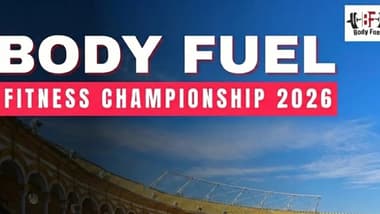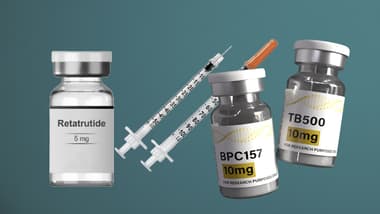Advanced Recovery Methods for Kenya's Climate
Master recovery techniques adapted for Kenya's tropical climate.
Master recovery techniques adapted for Kenya's tropical climate.

Recovery isn't just about rest—it's about actively optimizing your body's repair processes. Kenya's warm climate and high altitude create unique challenges and opportunities for recovery that require specific strategies.
Quality sleep becomes even more critical when training in heat and at altitude. Your body works harder during the day, making restorative sleep essential.
Cooling strategies for better sleep:
Create airflow with fans positioned to draw hot air out rather than just circulating it. Sleep with minimal, breathable cotton clothing. Take a lukewarm shower before bed to lower core temperature. Keep a damp towel by your bed to place on your neck or forehead if you wake up hot.
Timing matters: Try to sleep during the coolest part of the night. This often means earlier bedtimes (9-10 PM) and earlier wake times (5-6 AM), which aligns well with training in cooler morning temperatures.
Power naps: In hot climates, afternoon naps (20-30 minutes maximum) can significantly boost recovery without interfering with nighttime sleep. Many successful Kenyan athletes incorporate strategic napping.
Proper hydration accelerates every recovery process in your body. In Kenya's climate, dehydration can undo hours of good training.
Recovery hydration protocol: Drink 150% of fluid lost during training. If you lost 1kg during a workout, drink 1.5 liters over the following 4-6 hours. Include electrolytes—a pinch of salt and lemon in water works as well as expensive sports drinks.
Monitor your recovery hydration: Morning urine should be pale yellow. Dark urine indicates incomplete rehydration from previous day's activities.
Kenya's environment offers incredible opportunities for active recovery that most countries can't match.
Morning walks at Karura Forest or Arboretum: Light movement in cooler temperatures with fresh air promotes blood flow without adding stress.
Beach recovery: If you can access the coast, walking in sand provides gentle resistance while sea air offers natural relaxation benefits.
Hill walking: Gentle walks in areas like Ngong Hills provide light cardiovascular work that aids recovery without intensity.
The key is keeping these activities truly easy—you should be able to hold a conversation throughout.
Controlled heat exposure can actually enhance your recovery processes. Your body's adaptation to heat stress improves cardiovascular efficiency and heat tolerance.
Sauna alternatives: If you don't have access to a sauna, sit in your car in the shade for 15-20 minutes after it's been in the sun. Not comfortable, but effective for heat adaptation.
Timing heat exposure: Use natural heat during lower-stress periods, not immediately after intense training when your body is already stressed.
While ice baths aren't practical for most Kenyans, cold water therapy still offers benefits.
Cold showers: End your shower with 1-2 minutes of cold water. This provides many of the benefits of ice baths without the cost or complexity.
Swimming pools: If available, swimming in cool water provides gentle exercise while lowering core temperature.
Natural cold exposure: Early morning air temperatures can provide natural cold exposure that aids recovery.
When you eat matters as much as what you eat for optimal recovery in hot climates.
Post-workout window: Get protein and carbs within 2 hours of training. This becomes more critical in heat where muscle breakdown increases.
Anti-inflammatory foods: Include natural anti-inflammatories abundant in Kenya: ginger, turmeric, pineapple, and leafy green vegetables.
Recovery timing: Eat your largest meals during cooler parts of the day when digestion is less stressful for your system.
Mental stress dramatically impairs physical recovery. Urban life in places like Nairobi creates chronic stress that sabotages your training adaptations.
Traffic stress management: Use commute time for breathing exercises or listening to calming music rather than engaging with stressful content.
Financial stress acknowledgment: Money worries affect recovery. Budget for basic nutrition and adequate rest before expensive supplements or equipment.
Social recovery: Maintain connections with friends and family. Social isolation impairs recovery as much as poor nutrition.
In hot climates, mobility work becomes essential for recovery but should be done strategically.
Gentle stretching in cool environments: Do your flexibility work indoors or during cooler temperatures to avoid additional heat stress.
Breathing-focused sessions: Combine gentle movement with deep breathing to activate parasympathetic recovery systems.
Listen to your body: Some days you need complete rest, others you need gentle movement. Learn the difference.
Track your recovery to optimize training intensity and frequency.
Simple metrics: Morning heart rate (should be within 5-10 beats of normal), energy levels throughout the day, sleep quality, and motivation to train.
Avoid over-monitoring: Too much data can create stress that impairs recovery. Keep it simple.
Tennis ball massage: Effective self-massage tool that costs less than 200 KSH.
Foam rolling alternatives: Use a water bottle (frozen or room temperature) for similar benefits.
Meditation apps: Many offer free content that genuinely improves recovery by reducing stress.
Recovery groups: Join or form groups focused on recovery practices. Social support enhances all recovery methods.
Training through fatigue in heat: What feels like laziness might be genuine fatigue. Heat amplifies tiredness.
Ignoring mental stress: Physical recovery without addressing mental stress is incomplete.
Comparing to temperate climate recommendations: Your recovery needs are different in Kenya's environment.
All-or-nothing thinking: Partial recovery is better than no recovery focus.
Recovery doesn't require expensive equipment or perfect conditions. Focus on sleep quality, adequate hydration, gentle movement, and stress management.
Use Kenya's natural advantages—beautiful outdoor spaces, abundant fruits, and strong social connections—to enhance your recovery processes.
Remember: recovery is where adaptation happens. You break down muscles during training and build them during recovery. In Kenya's challenging climate, prioritizing recovery isn't optional—it's essential for progress.
Continue reading with these related fitness and health articles




Join the conversation!
Share your thoughts on "Advanced Recovery Methods for Kenya's Climate" below.